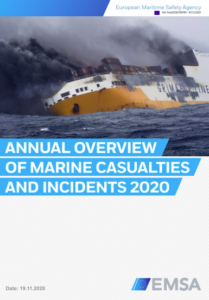A total of 3,062 marine casualties were reported on ships in Europe in 2019, down by 200 casualties in comparison with 2018, according to the latest EMSA overview of marine casualties. The number of serious marine casualties was 63, also representing a decrease after a pick in 2018.
The Annual Overview of Marine Casualties includes incidents reported by the EU Member States in the European electronic database (EMCIP) established by the Directive 2009/18/EC of 20 July 2020.
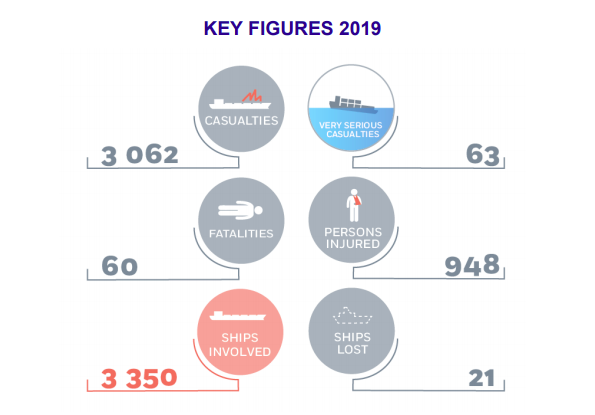
The total number of occurrences stored in the EMCIP database has grown to 19,500 over 2014-2019. This represents an average of 3,236 marine casualties or incidents per year over the period.
The year 2019 appeared to have been a positive year considering the improvement or stabilisation of some indicators, such as the number of ships lost, fatalities and injuries,
…the EMSA report finds.
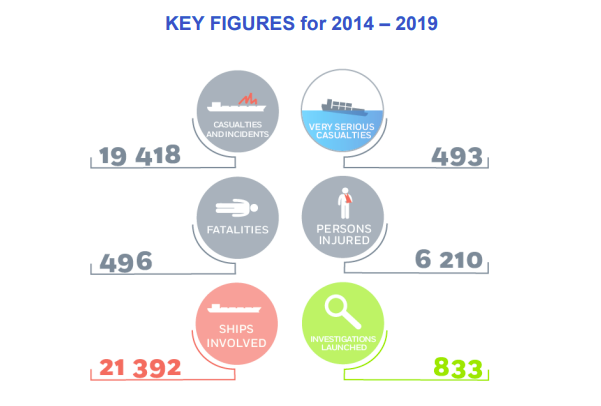
Key figures
- A total of 106 very serious casualties reported in 2018, which corresponded to an increase of 68% in comparison with 2017, while the total number decreased back to 63 in 2019.
- Meanwhile, a total of 21 ships were lost in 2019, after a peak in 2018.
- During the 2014-2019 period, 320 accidents resulted in a total of 496 lives lost. After a continuous important decrease from 2015 to 2017, a limited increase was recorded for the years 2018 and 2019. 88.3% of the victims were crew members.
- Fatalities mainly occurred during collisions.
- When the event is limited to persons, falls were the main cause for losses of life.
- The main event resulting in fatalities was collisions when it related to a ship and falls when it related to persons.
- Over the period 2014-2019, 6,210 injuries were recorded, corresponding to 5424 accidents. Again, crew members represent the main category of persons injured at sea with 79.3% of the victims.

Per ship type
In 2019, apart from the passenger ships and, to some extent, the fishing vessels, the number of all other types of ships involved in casualties and incidents recorded a reduction. The same trend was noted over the period 2014-2019.

- In 2019, 1382 cargo ships were involved in marine casualties or incidents that resulted in 19 fatalities.
- Only one cargo ship was lost in 2019.
- With a total of 91, fishing vessels remain the category of ships with the highest number of ships lost over the 2014-2019 period.
- In 2019 the number of occurrences involving fishing vessels slightly increased; however, the number of ships lost reduced to 14 (in comparison with 16 in 2018) and the number of injuries stabilised at 220.
- Almost half of the casualties that occurred on board a passenger ship involved a Ro/Ro passenger ship, also known as “ferries”.
- One passenger ship was lost in 2019; the number of fatalities and injuries has nevertheless seen a decreasing trend since 2014.
- In 2018, 2 service ships were lost. While the number of injuries continued to decrease since 2015, the number of fatalities increased significantly in 2019 due to the loss of the Bourbon Rhodes, when 4 persons lost their lives, and 7 persons went missing.
- In 2019, 60 ships of other types involved in marine casualties and incidents, mainly recreational motorboats and sailing boats. 3 ships were lost, and 7 fatalities were reported.
Per cause of incidents
Accidents of navigational nature, such as contacts, grounding/stranding and collision encountered for 44% of all occurrences related to the ship.
It was however noted that the main type of accident to a ship was the loss of propulsion power, that counted for 21.8%.
The main casualty event over 2014-2019 is “Loss of control – Loss of propulsion power”. It is the only casualty event that increased continuously since 2014.
Regarding occurrences to person(s), 37% were attributed to slipping, stumbling and falling of persons. Among the falls, 10% were fall overboard.
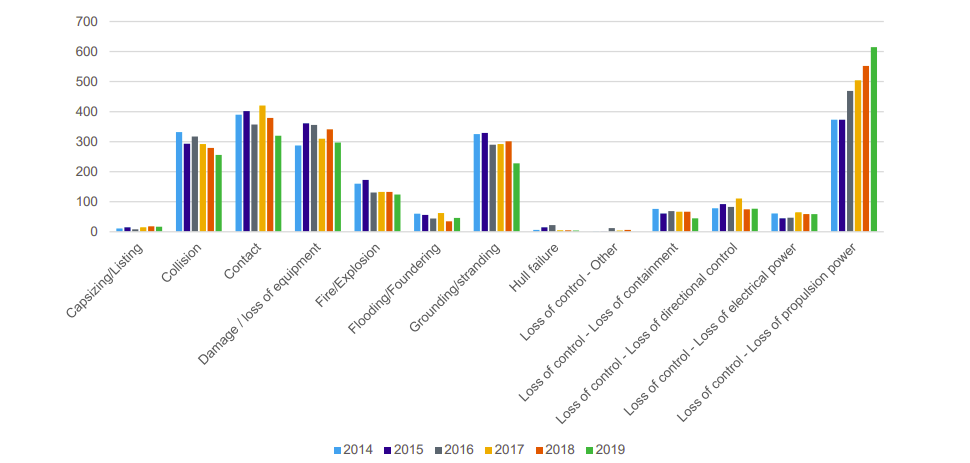
Per location of incident
The departure phase appeared to be the safest phase of a voyage and the en route portion the most unsafe. It was noted that half of the casualties occurred in internal waters, more precisely in port areas.
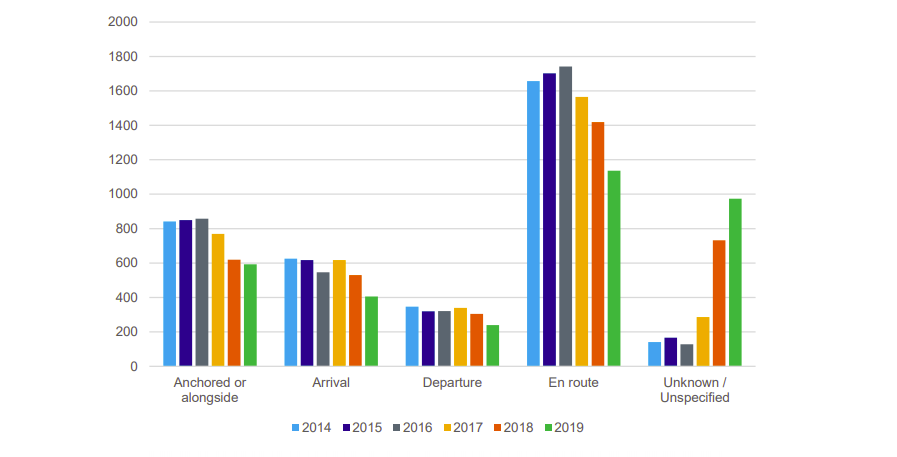
Explore more herebelow:
